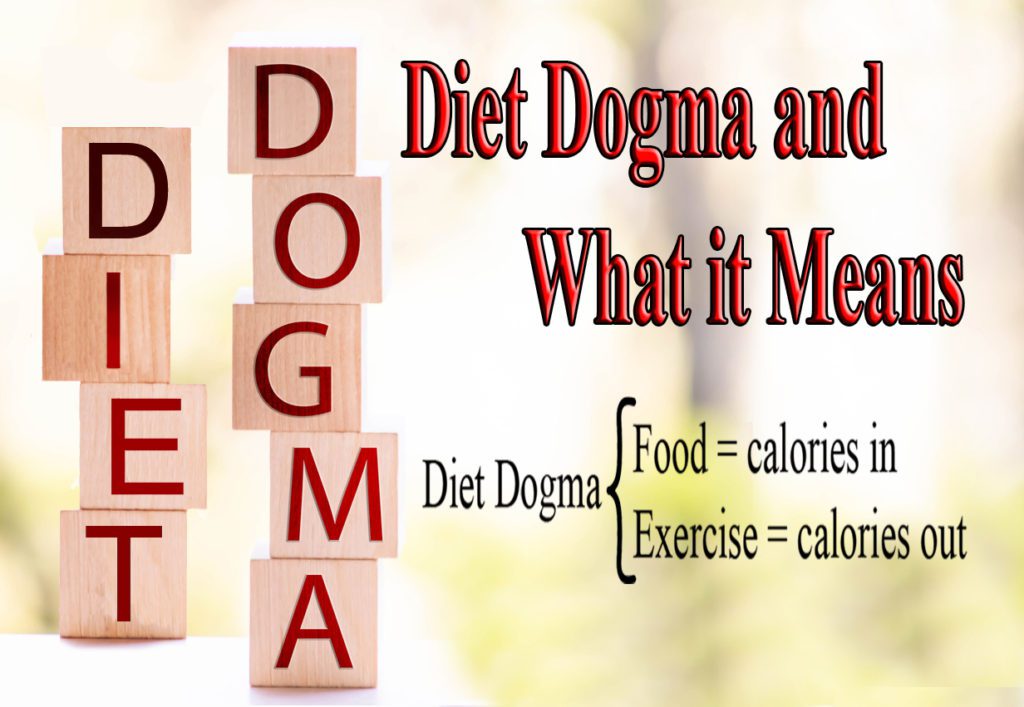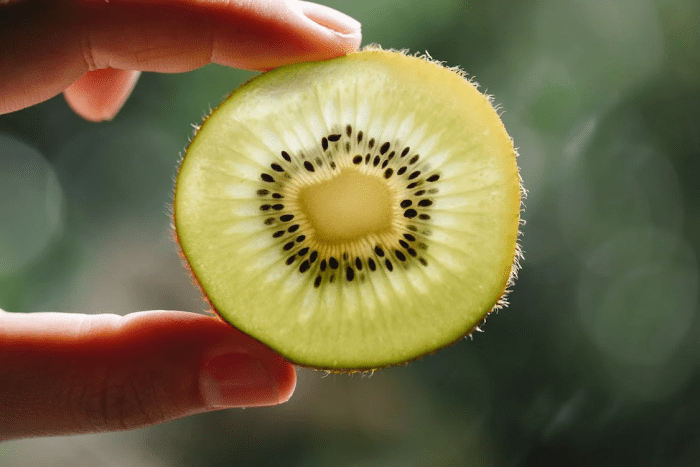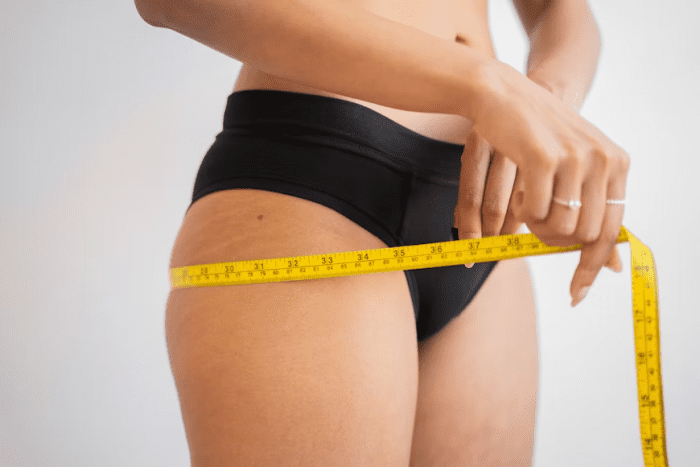
Dogma is a principle or set of principles laid down by an authority as absolute truth. We often associate dogma with religion, but dogma is part of nearly all fields of study, including diet and medicine. Dogma can be one of 3 things;
1. Correct; 2. Partly correct; 3. Wrong.
Some historic medical dogma proven wrong include: bloodletting, Arsenic to treat disease, and Radon laced water as a cure-all. Today we cringe at these barbaric medical remedies, but at one time, they were held as medical dogma, i.e., medical truth.
One wrong modern dogma is the “calories in / calories out” approach for weight loss. Often expressed as “exercise more and eat less.” Even though scientific research shows that this approach fails 99% of the time, it is still a widely held erroneous medical dogma.

Where did this idea come from? The first Law of Thermodynamics is often cited as proof of this concept. You get as much energy out of a system as you put in. If you consume less energy (food) and burn more energy (exercise), there will be less energy to make you fat, so eat less and exercise more –
simply burn more energy than comes in.
The problem is that that is only part of the law of Thermodynamics. Quite often, those expressing this idea fail to note the law also says, “In a closed system.” When calculating calories, a combustible item like food is placed in a closed metal cylinder and burned; the amount of energy produced is measured. The test is run in a closed system. But the human body is not a closed system; it is an incredibly open and dynamic system that generates thousands of physiological actions per second; definitely not a closed system.
Hormones control these physiological actions. One of the most important hormones in weight control is insulin. There are many more but let’s start with this one. Insulin is the “survival hormone”; in the past, when there was lots of food, insulin took some of the extra food and stored it as fat. Then, when hard times hit and food was scarce, fat could be used to keep the body going. After eating, it takes 12 hours for insulin to leave the bloodstream; during this time, the body stores fat. Fasting for more than 12 hours allows the body to switch into fat-burning mode.
This Weeks Diet and Lifestyle Q&A – Do obese and overweight people have a lower or slower metabolism that prevents them from losing weight? Answer below.
Food for Thought – One dozen great alternatives to sweet snacks:
- Pistachios, 25 each
- Celery Sticks with Nut Butter
- Fresh Cherry Tomatoes
- Walnuts, 10 to 15 each
- Baked Zucchini Chips with Salsa
- Fresh Cherries
- Mixed Nuts, 1/4 cup
- Medjool Dates, 2 each
- Almonds, 23 each
- Fresh Fruit Popsicle
- Raw Veggies with Bean Dip
- Carrots, Celery, Cucumbers, and Tomatoes
Trouble Shooting – Fasting and hunger control. Feeling hungry and want to extend your fast? Try these tips.
- Drink a glass of ice water. A pinch of sea salt can also help but do not overdo it.
- Drink a cup of coffee or tea.
- Drink a cup of hot water (especially in winter.)
- Have an unflavored club soda or sparkling water.
- Have a glass of ice water with a dash of apple cider vinegar.
Test your dietary IQ – Email me at Lovethisdietplan@gmail.com, and I will send you a complimentary set of often asked diet and fasting questions with answers.
Be safe and be happy.
Jim
New: Check out our new youtube channel at: https://www.youtube.com/channel/UCeycoyo7yT1rLPMzt3s_f-Q
This Week’s Diet and Lifestyle Answer –
Question – Do obese and overweight people have a lower or slower metabolism that prevents them from losing weight?
Answer – No, Obese and overweight people have a higher metabolic rate. Their bodies recognize the abundance of weight and increase their metabolic rate to try to burn the extra carbs.
Please note I am not a doctor or dietitian. The information provided is from my personal experiences, successes, and failures. Before starting any diet or making significant changes in your dietary lifestyle, always check with your doctor or health care professional.



